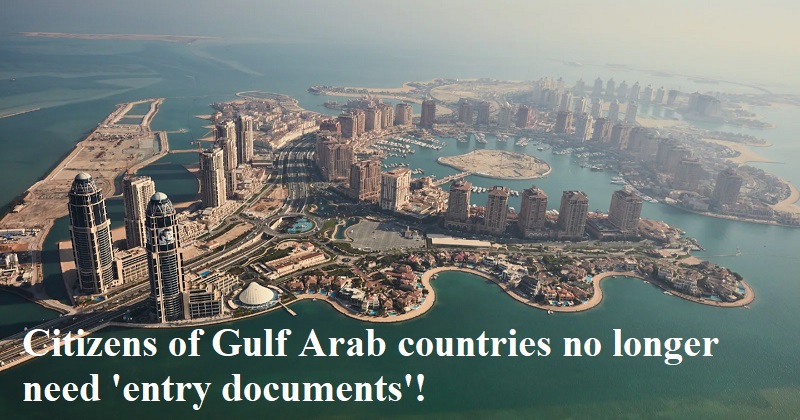
In light of a reconciliation in the area following a blockade put on Doha between 2017 and 2021, the Qatari government stated on Tuesday that entrance documents for nationals of Gulf Arab states would no longer be required. The obligation for residents and citizens of Cooperation Council for the Arab States of the Gulf countries to receive the ‘hajjah’ has been abolished, according to the Qatari Interior Ministry (GCC).
Thus, it has emphasised that these individuals would be permitted to enter the nation through all border crossings without having to provide this document, a step that takes effect coming Tuesday, according to the Qatari state news agency, QNA. In order to facilitate admission to those without World Cup soccer tickets, Qatar changed its entry criteria in November. The ‘hayya’ was a visa for admission into Qatar, which is still needed to enter stadiums today.
The declaration was made the day following President of the United Arab Emirates (UAE) Mohamed bin Zayed al Nahyan’s visit, which was his first since the boycott that four regional nations had been pushing since 2014 over Doha’s alleged ‘support for terrorism’. Following the boycott’s termination in January 2021, just before Joe Biden was inaugurated as president of the United States, Qatar has strengthened its connections with the nations who spearheaded it, Saudi Arabia, Bahrain, Egypt, and the UAE.
These nations announced a deal with Qatar in January 2021 that would restore borders and lift the country’s embargo. In the past, relations between these nations have seen ups and downs, particularly over Qatar’s government’s support for the Muslim Brotherhood, a group that is prohibited in most Gulf nations, and the role of the Al-Jazeera network in covering the so-called ‘Arab Spring’.
However, and despite the fact that tensions flared up again in 2014 and resulted in the withdrawal of ambassadors, in the case of 2017, they necessitated a series of much harsher measures, such as the expulsion of citizens from the country and the closing of roads to vehicles arriving from Qatar.

Post Your Comments